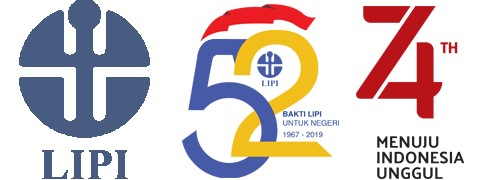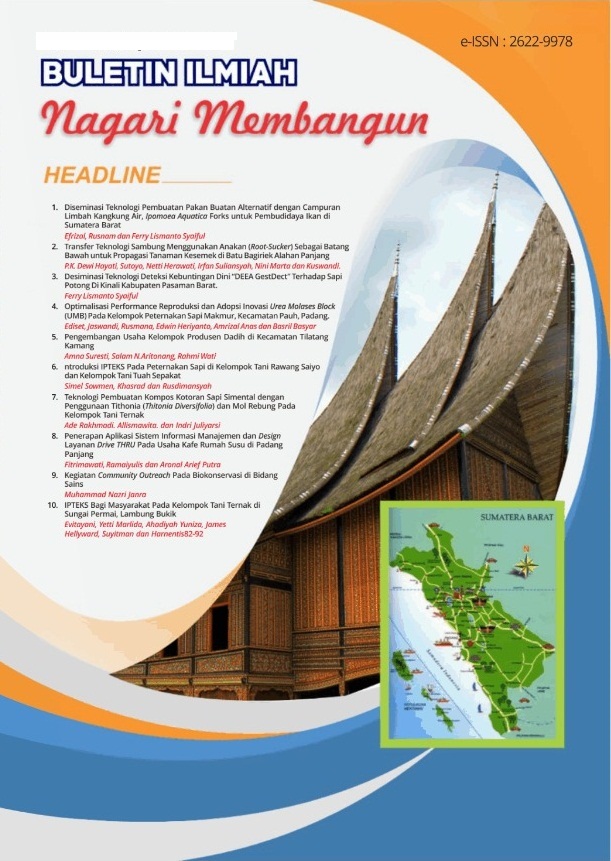PENINGKATAN KAPASITAS KELOMPOK SADAR WISATA BERBASIS COMMUNITY BASED TOURISM DI NAGARI SITAPA KECAMATAN LUAK KABUPATEN LIMA PULUH KOTA
Abstract
Tourism is a sector that contributes to the income of a region. Tourism activities not only have a positive impact on tourism objects, but this will be related to other sectors supporting tourism (accommodation, culinary and other service providers). One of the villages/villages that have started to develop tourism in West Sumatra is Nagari Sikabu-Kabu Tanjung Haro Padang Panjang (SITAPA), Luak District, Limapuluh Kota Regency which is famous for its natural attractions such as the natural panorama of Talang and Kayu Kolek. The development of this tourist attraction cannot be separated from the role of local tourism awareness groups (pokdarwis) and other interest groups. The purpose of this activity is to increase the capacity of tourism awareness groups in the field of tourism management in Nagari Sitapa by using the Community Based Tourism (CBT) approach and the target is given to the Tourism Awareness Group. With the implementation of CBT in tourism development, it is hoped that the community and other interested parties can continue to develop the tourism sector without changing the existing environmental conditions and ensuring that tourist objects remain natural without making many changes that will cause damage to the surrounding environment. Some strategies that can be implemented are to maximize natural potentials such as providing outbound and camping ground, as well as preparing supporting industries (MSMEs) to be able to provide edutourism to tourists.
Downloads
References
BRA, Baskoro, dan Cecep Rukendi. 2008. Membangun kota pariwisata berbasis komunitas: suatu kajian teoritis. Jurnal Kepariwisataan Vol 3 No 1.
Suansri, P. 2019. Community Based Tourism Handbook. REST PROJECT, Thailand.
Timothy, D.J. 1999. Participatory planning a view of tourism in Indonesia. Annals of Tourism Research, Vol. 26, Issue 2, pp. 251-492.
Utama, dan I.G.B. Rai. 2017. Pemasaran Pariwisata. ANDI,Yogyakarta.
Widagdyo, Kurniawan Gilang. 2015. Analisis pasar pariwisata Indonesia. The Journal of Tauhidinomics Vol 1 No1.




















